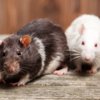Fritextsökning
Artiklar per år
Innehållstyper
-

New findings on the diseases that crushed Napoleon’s army
As if cold, starvation, and typhus weren’t enough. New research reveals that Napoleon’s defeated army also suffered from paratyphoid fever and relapsing fever during the retreat from Russia.
-

A cluster contribution to European life science innovation and competitiveness?
-

Svensk life science växer – men kapitalet hänger inte med
Antalet anställda och antalet företag inom svensk life science ökar och sektorn är mer jämställd än många andra sektorer. Men investeringarna i onoterade bolag är svag.
-

How the Nobel discovery is used in drug development
Regulatory T cells keep the immune system in check, a discovery now awarded the 2025 Nobel Prize in Physiology or Medicine. Qiang Pan Hammarström explains how this finding is being applied in today’s drug development, and what challenges remain.
-

Flemingsberg – en växande nod för Life Science
Flemingsberg i södra Stockholm har länge varit hem för ett livskraftigt life science-kluster. Nu sker en tydlig acceleration då fler företag etablerar sig, samarbeten fördjupas och innovationskraften växer.
-

Bolt halverar personalstyrkan när studieresultat försenas
Det amerikanska bioteknikbolaget Bolt Biotherapeutics genomför ännu en stor nedskärning. För andra gången på två år halveras personalstyrkan, i ett försök att frigöra resurser till bolagets pågående satsning på avancerad immunterapi.
-

Sarah Lidé: ”Artificial intelligence must not replace authentic interactions”
Artificial intelligence must never become a replacement for authentic, even if messy, interactions with our fellow humankind, Sarah Lifé, Deputy CEO at Medicon Village Innovation, writes in a column.
-

Heart Monitoring in Breast Cancer – Essential or Excessive?
Trastuzumab and related drugs have transformed breast cancer treatment and dramatically improved survival rates. But the close cardiac monitoring required during treatment can be a heavy burden for both patients and healthcare systems. Dr. Andri Papakonstantinou is working to refine how doctors identify which patients truly need intensive follow-up.
-

Flemingsberg – en växande nod för Life Science
Flemingsberg i södra Stockholm har länge varit hem för ett livskraftigt life science-kluster. Nu sker en tydlig acceleration då fler företag etablerar sig, samarbeten fördjupas och innovationskraften växer.
-

Kokainberoende råttor knarkade mindre med semaglutid
Läkemedel som innehåller semaglutid minskade suget hos kokainberoende råttor i en studie från Göteborgs universitet.
-

Nytt misslyckande för Pfizer inom blodsjukdom
För andra gången på mindre än ett år har Pfizer drabbats av en tung motgång för sin ambition att ta fram ett effektivt läkemedel för sicklecellssjukdom. Denna gång är det läkemedelskandidaten inclacumab som floppat i sen klinisk fas.
-

BMS and venture capital giant form new company
The American pharmaceutical company Bristol Myers Squibb, together with the venture capital firm Bain Capital, is forming a new biotech company. The company will develop treatments for autoimmune diseases where there is currently a lack of effective therapies.
-

Sanofi backar efter besvikelse i KOL-studie
Blandade resultat för KOL-behandlingen Itepekimab i två fas III-studier fick Sanofis och Regenerons aktier att backa ordentligt på fredagen.
-

The scientist behind Novo Nordisk's obesity success: “I never stopped believing in GLP-1”
It took several years of failures in GLP-1 before Lotte Bjerre Knudsen and her colleagues found the right path – but when they did, it was a true breakthrough. "We invested for 25 years while everyone else laughed at us. Now everyone wants to join the game," says Lotte Bjerre Knudsen, Chief Scientific Advisor at Novo Nordisk.
-

Trump in new push to lower drug prices
U.S. President Donald Trump announced on Sunday that he plans to sign an executive order to lower the cost of prescription drugs to the same levels paid in other wealthy countries — something he claims could reduce prices by 30 to 80 percent.
-

Camurus får grönt ljus i EU för behandling mot akromegali
Lundabolaget Camurus behandling för hormonsjukdomen akromegali – eller jätteväxt – har fått ett positivt utlåtande av den europeiska läkemedelsmyndigheten EMA och rekommenderas för godkännande i EU.
-

Mikael Kubista back with new venture after turbulent exit
Entrepreneur and researcher Mikael Kubista is starting a new company. Now he is also free to comment on the sequence of events that led to him losing ownership of his life's work – the company Tataa Biocenter. “Not only did they take our company away from us. They followed up by showering us with lawsuits,” he says.
-

From pharmacist to life science podcaster – Magnus Lejelöv uses his voice as a tool
Magnus Lejelöv has more than 20 years of experience in the pharmaceutical industry and has conducted nearly two hundred interviews with healthcare professionals on his podcasts.
-

Korbinian Löbmann leads scientific meeting on drug formulation: High activity in the field
Korbinian Löbmann has moderated New Updates in Drug Formulation & Bioavailability several times before. Now he is once again taking on the scientific meeting. Life Science Sweden reached out to him.
-

An organ seldom in the spotlight – but utterly vital
The kidneys consist of more than 40 types of cells and have more functions in the body than most people know. Julie Williams leads AstraZeneca’s work in preclinical research about kidney diseases. “They are probably one of the most complicated organs in the body, and I like a challenge”, she says.
-

Aqilion's licensing journey: From Merck partnership to new opportunities
Be extremely meticulous with your scientific data, but spend just as much time and effort on business development. That piece of advice comes from Aqilion's CEO Sarah Fredriksson and is directed at biotech companies aiming to find a good licensing partner.
-

A tiny animal with great importance
From the mythical Ganges River to the less sacred, but considerably cleaner waters in KI's aquariums in Solna. The little zebrafish has made an unconscious career – as an increasingly important model organism in medical research.
-

Who pays for Rebecca Doe – and all of us?
Anna Törner on how easily we get used to the idea that healthcare is free - when it really is about how and who pays for it
-

The art of successful licensing – “A lot has to align”
Sharp research, strong data and a high level of innovation are all very good, but more than that is required to achieve the goal of many biotechnology companies: to succeed with a licensing deal.